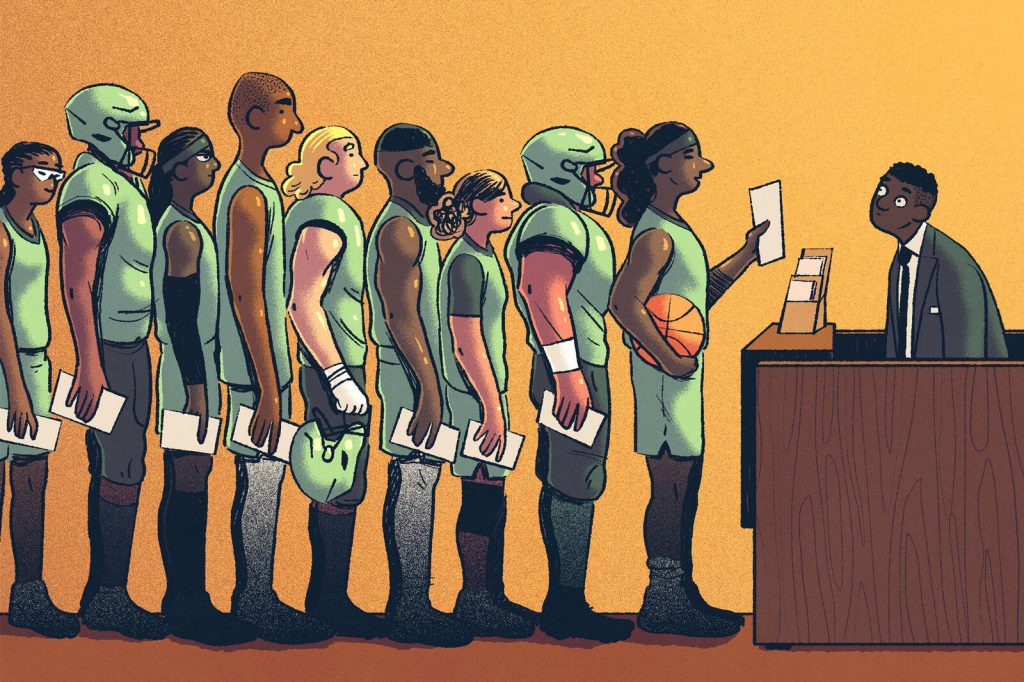Should You Reveal Your Athletic Background to Employers?

For student-athletes, the transition from the playing field to the professional world can be a unique challenge. Juggling a demanding sport with academics requires dedication, resilience, and exceptional time management—all qualities that employers value. However, many athletes wonder whether they should disclose their athletic background to a potential employer, fearing it may lead to misconceptions. Here’s a look at whether you should reveal your athletic background and key factors to consider.
1. Highlight Transferable Skills
As a student-athlete, you’ve developed a variety of valuable skills. The need to balance practice and games with schoolwork teaches effective time management and prioritization. Being on a team requires collaboration toward a shared objective, a skill that translates to any work environment. Many athletes hold leadership roles, developing communication and decision-making skills. Athletes are also accustomed to pushing through challenges and performing under pressure, which is highly valued in fast-paced industries. By sharing your athletic background, you can highlight these strengths and show how they align with the job’s demands. Employers are often impressed by candidates who can demonstrate success both on the field and in the classroom.
2. Consider Company Culture and Values
Before deciding whether to disclose your athletic background, research the company’s culture. Some organizations value sports and athleticism as part of their culture, especially if they emphasize teamwork or competition. If a company sponsors sports teams, hosts wellness challenges, or participates in athletic events, sharing your experience can show you align with their values. If the culture is more focused on individual achievements or technical skills, you may choose to highlight your athletic experience more subtly, focusing on transferable skills rather than athletic achievements.
3. Frame Your Experience Effectively
How you present your athletic experience is key. Since employers may not understand the demands on a student-athlete, it’s important to explain how your time as an athlete prepared you for the professional world. Instead of simply stating that you were on a sports team, focus on the skills you developed and how they will benefit the organization. For example, if you were a captain, explain how you led your team and helped maintain morale. By focusing on the skills, you help employers see the relevance of your background.
4. Know When to Disclose
The timing of your disclosure depends on how you want to present yourself. On your resume and in your cover letter, you can include athletic experience under “Leadership” or “Extracurricular Activities,” framing it with relevant skills and accomplishments. During interviews, you can mention it naturally, depending on the conversation. For jobs emphasizing teamwork, leadership, or resilience, disclosing your athletic background early on can help you stand out. For more technical roles, you might focus on academic and professional qualifications first, weaving in your athletic experience when it feels appropriate.
5. Address Potential Bias
While many employers appreciate the qualities of student-athletes, some may have biases. They might assume that athletes are less focused on academics or that they are overly competitive. To counter this, emphasize how you successfully balanced your academic and athletic responsibilities. Demonstrating strong academic performance alongside your commitments shows employers you can excel in multiple areas. You can also address concerns about competitiveness by emphasizing your teamwork and collaborative skills.
6. Leverage Your Network
Student-athletes often have access to unique networks that can help with their job search. Many universities offer career services specifically for athletes, connecting them with alumni who were also student-athletes or with employers who value athletic experience. Athletes also build strong networks through their sport, which can be invaluable. Leveraging these connections can help you find employers who appreciate the qualities you bring to the workplace.
7. Consider Your Long-Term Goals
When deciding how to present your background, think about your long-term career goals. If your identity as an athlete is important to you, you may want to find a company that values and supports that part of your life. Disclosing your athletic background early can help you find organizations that appreciate the qualities you possess. However, if you’re entering a more specialized or technical field, you might focus more on your academic and professional qualifications, using your athletic background to highlight relevant skills without making it the central point of your application.

